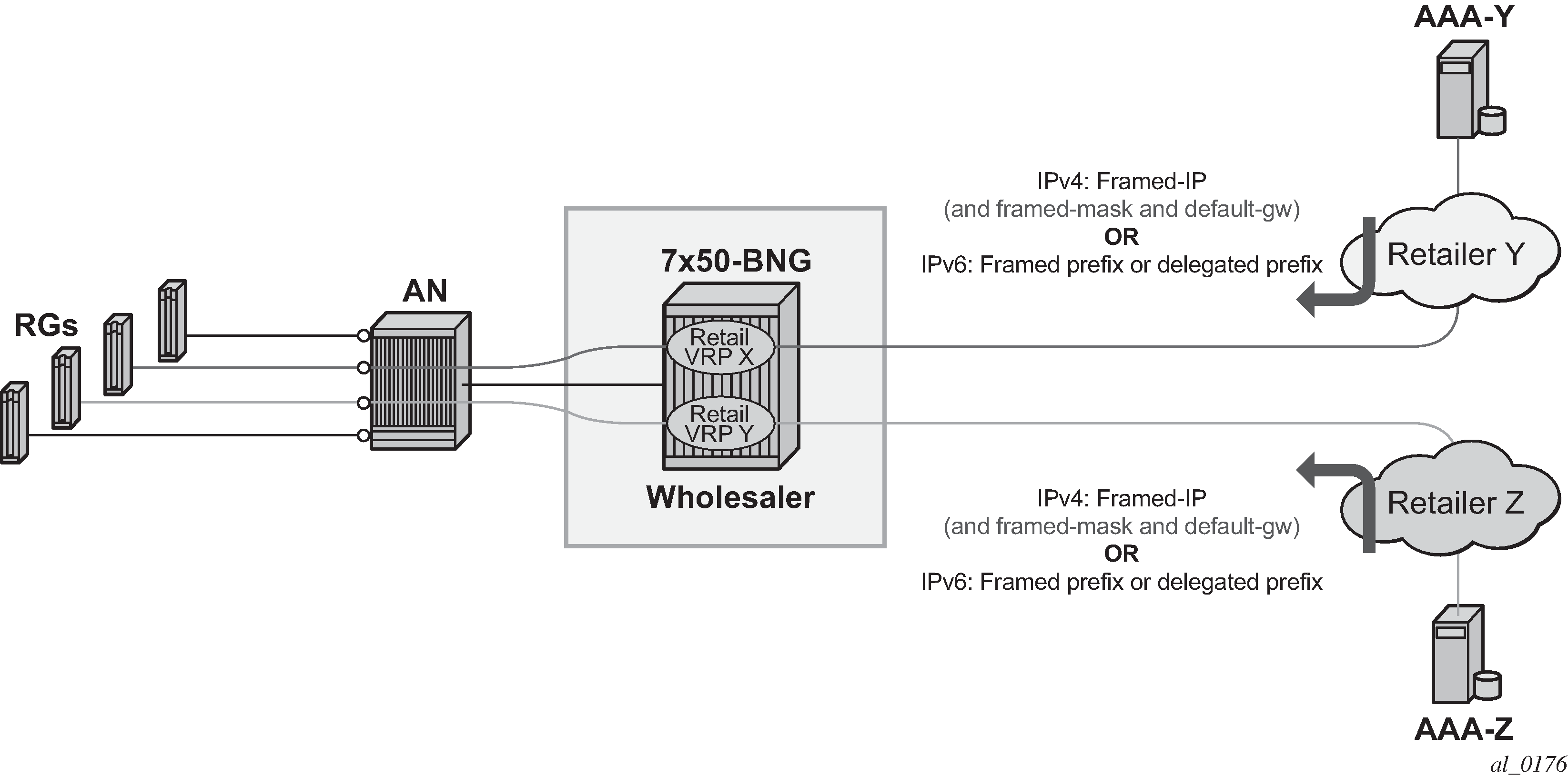In various wholesale or retail environments, the wholesale provider that own the 7450 ESS and 7750 SR BNG does not know the IP addresses that the retailers assigns to their clients in advance. For this reason, wholesaler’s BNG must accept any IP address from retailers and consequently pass it to the client during subscriber-host initiation phase.
Figure: Use case for flexible IP addressing model shows a use case for flexible IP addressing mode.

Flexible addressing of the subscriber-interface assumes two deployment scenarios:
Subscriber-interface is unnumbered
For example, there is no explicit assigned IP address. Instead the subscriber-interface borrows the IP address from an existing interface that is operationally UP and is located in the same routing instance (router or vprn).
An interface must have an IP address assigned to be operationally UP. Therefore, an unnumbered subscriber-interface must reference another existing interface that is operationally UP in the same routing instance. The subscriber-interface borrows the IP address from the referenced interface.
In this case any IP address can be assigned to the subscriber host under the unnumbered subscriber-interface. The subscriber IPv4 address is installed in the FDB as /32 route while IPv6 address is installed as an entry of the length anywhere between 64 and 128 bits.
Subscriber-interface is numbered
The IP address/prefix is explicitly configured and solely owned by the subscriber-interface.
In this case, all subscriber IP addresses/prefixes that fall under the subnet/prefix dictated by the configured subscriber-interface IP address/prefix is directly aggregated under the subscriber-interface subnet. They occupy a single entry in the FDB. The rest of the subscriber hosts with IP addresses/prefixes that fall outside of the configured range are installed in the FDB as individual entries (/32 for IPv4 and an entry of the length anywhere between 64 and 128 bits for IPv6 hosts).